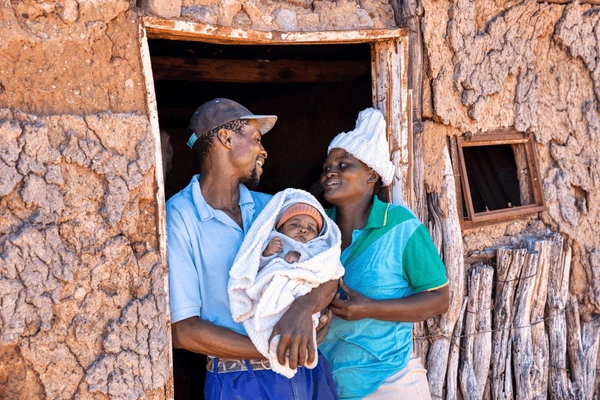
By Our Reporter
In a landmark ruling that could reshape family law and parental rights in Kenya, the High Court has declared that a parent cannot unilaterally name a child without the involvement of the other parent. The decision underscores the critical importance of shared parental responsibility in the upbringing of children, especially in the evolving landscape of modern parenting.
Justice Hillary Chemitei, delivering the ruling last week, emphasized that the process of naming a child must be collaborative and inclusive of both parents—regardless of marital or cultural complexities.
“A child’s identity is deeply tied to their name, and both parents must play a role in that decision,” Justice Chemitei stated.
The ruling arose from a case filed by a man identified in court documents as C.K.M., who challenged his wife’s unilateral decision to name their youngest daughter without his consent. The couple, married since December 2012 and parents to five children, had disagreed over the naming of their newborn daughter, prompting the father to seek legal redress in August 2024.
According to reports by the Daily Nation, the mother selected a feminine name with Japanese origins, along with two Kikuyu names. In contrast, the father proposed a French feminine name, a Catholic saint’s name, and a third name to honour his own father—a tradition he claimed to have followed for all their children.
He further told the court that he had covered all birth-related medical expenses at a private hospital in Nairobi and feared that the birth certificate would be issued with names he had not approved.
Justice Chemitei ruled in the father’s favour, declaring that both parents must agree on the child’s name within 30 days. If no consensus is reached, the father will have the final say. The court also directed the Registrar of Births and Deaths to comply with the outcome.
“The issue of names and naming is a right generally bestowed upon the parents. It is a right which cannot be derogated or transferred to any third party unless otherwise shown,” Justice Chemitei stated. He added that even though the mother is the biological parent, she cannot act unilaterally in naming the child without the father’s involvement.
The judge referenced traditional African norms, which emphasize joint parental involvement in the naming process, and stated that while cultural norms continue to evolve—particularly with the rise of single-parent homes and intercultural unions—mutual agreement remains a foundational principle.
The court also considered psychological perspectives, noting that excluding one parent from the naming process can have lasting effects on the child’s sense of identity and emotional well-being.
Meanwhile, the ruling has reignited public debate around naming conventions in Kenya. Lilian Ng’ang’a, estranged wife of veteran musician Juliani, recently questioned the patriarchal tradition of naming children solely after their fathers. She argued for a more inclusive system that reflects both maternal and paternal heritage, possibly incorporating names from both sides of the family.
Her comments have sparked widespread discussion, with some supporting the idea of reform while others urged the preservation of traditional naming practices that maintain ties to the father’s lineage.
The High Court’s ruling sets a significant legal precedent and may influence future cases involving parental rights, cultural identity, and child welfare in Kenya.

